
Gordana Crnković
Dear Friends of the Slavic Department,
We had a busy and joyful second part of the academic year. Our faculty continued to actively publish and teach, introducing our students to the riches of Slavic languages and world literature, cinema, and culture. Alongside our Slavic and Russian graduates, our festive June Convocation celebrated the first generation of graduates of our new and fast-growing GLITS (Global Literary Studies)…

In June we celebrated the Class of 2025, with this year marking the first graduating cohort of the Global Literary Studies (GLITS) program. Since its recent launch in 2024, this new major has allowed students to explore literature from around the world and from all eras of human history. After the four GLITS graduates walked to receive their…

There are four recipients of the 2025 Best Russian Language Student Award. This award is given to students who have excelled in their Russian courses as they have shown dedication towards learning the challenging language. This year’s awardees recently completed their first and second years of Russian.
Sophia Grechishkin is a first-year marine biology major, and having grown up in the states, her primary language is English. However, her father was…

Taylor Eftimov is this year’s recipient of the Outstanding Graduate Student Award. This prize is awarded for academic excellence and service to the department, which Taylor demonstrated throughout her completion of a PhD in Slavic Languages & Literatures.
“I specifically came to UW's Slavic program because it is one of the few in the country that does not require knowledge of the Russian language,” Taylor explained in an email. “Because I wanted to focus on the literature of the…

Aidan Ruppert is a third-year UW student majoring in biochemistry and minoring in Russian. The Oleg Fomin Scholarship encourages exploration of the languages, cultures, and histories of post-Soviet states. Aidan, as the recipient of this scholarship, traveled to Georgia, Uzbekistan, and Kyrgyzstan.
As he began planning his trip, Aidan was most excited to see the natural beauty of Georgia’s geography; however, after he booked a tour to explore the mountains of Bishkek, Kyrgyzstan, on horseback…

From teaching and writing plays to co-founding a cultural center and establishing a career in change management, this alum of the Slavic department continues to find creative ways to connect people with languages and cultures.
Mira Martinović grew up in former Yugoslavia, a place where one could feel stability and instability both woven through the personal identities and politics of the region. She describes her childhood years as being part of a supportive, unified community where…
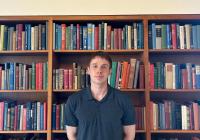
Anthony Veneziani is a third-year student majoring in Slavic Languages, Literatures and Cultures, and this year’s recipient of the Outstanding Undergraduate Student Award. This prize is awarded to undergraduate students who have demonstrated academic excellence and service to the department. Anthony’s innate interest in Russian led him to declare a major in the language, with his achievements eventually earning him the Vadim Pahn Scholarship.
Historically, the Vadim Pahn Scholarship has been…
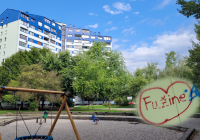
Taylor Eftimov won the "2024 Alexander Dunkel Graduate Student Essay Prize" as the best Graduate Student Essay for the Western Association of Slavic Studies, a regional affiliate of ASEEES.
Eftimov presented her paper, titled "Homeland and Slovenia's 'Southern Burden'," at the Western Social Science Association (WSSA) Conference in Seattle on April 4, 2025.

In May 2025, Svetlana Ostroverkhova presented "Turkish Language Reform: How Far Did It Go?” at the 18th AATT Graduate Student Conference.
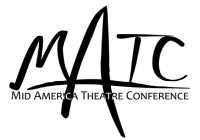
In March 2025, Svetlana Ostroverkhova presented “Public Executions in 19th-century England, France, and Russia: An Evil Performance” at the 45th Annual Mid-America Theatre Conference.
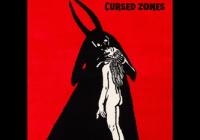
Contemporary Slavic Horror across Media: Cursed Zones, edited by Professor Agnieszka Jezyk, will be released by Manchester University Press on June 17, 2025. Professor José Alaniz is among the contributors to the anthology, with the essay "Post-Soviet gothic and the East European zombie."
Book description:
In the Western cultural production that puts individual or collective fear at its center, East/Central Europe has been portrayed as an othered space of horror - lawless,…
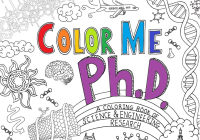
Recent faculty books from the University of Washington include those from linguistics, Slavic languages and literature and French. UW News spoke with the authors of four publications to learn more about their work. Scrutinizing and confronting AI hype Emily M. Bender, UW professor of linguistics, co-authored The AI Con: How to Fight Big Techs Hype...…

John Johnson (B.A., Russian, 1995) writes:
After 24 years as a diplomat in six different countries I have finally had the opportunity to use the Russian that I worked so hard to learn at UW. As the acting Russian language spokesperson for the State Department (based in Brussels) my team and I are responsible for in-language policy messaging to Russians in country and the diaspora around the world. It's been an interesting time to fill that role. Even more…

Richard Balthazar (M.A., Slavic Linguistics, 1966) writes:
After 5 years of research and artwork, in 2025 I completed a book on the Aztec ceremonial calendar entitled "Tonalpohualli, The Aztec Count of Days" available for free download. Presenting and comparing the 20 "trecenas" from 6 historical "tonalamatls" (books of days) along with divinatory, mythological, and iconographic commentaries…
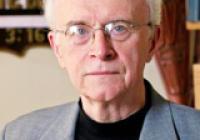
On May 24, 2025, Affiliate Professor Eugene Lemcio gave the main address during the 25th Anniversary Celebration of the Ivan Ohienko Ukrainian Saturday School in Renton. The School was named after the renowned 20th century scholar who had headed the team that translated the Bible into modern Ukrainian for the British and Foreign Bible Society. He and Gene's late Pastor, the Rev. Dr. Lev Zhabko-Potapovych, directed the final editorial process. The "Ohienko Bible" of 1962 succeeded…

"For all that my project with co-translator Harriet Murav seems to align with the presidents supposed interest in fighting antisemitism, there it was: Our grant was being terminated, in accordance with 'an urgent priority for the administration,' as the NEH was 'repurposing its funding allocations in a new direction in furtherance of the Presidents agenda,'" writes Sasha Senderovich, associate professor of Slavic languages and literatures at the UW.…

Affiliate Professor Eugene Lemcio (Лемцьо) has published two “faux reviews” in the 2024 issue of the Canadian-American Theological Review. These genre-bending fictional works (in a “thriller” mode) address hubris and the impact of hellenism within early Jewish Christianity. Throughout, Gene integrates aspects of his Ukrainian heritage (three generations removed). He credits Professor Crnković for a bibliographic reference.
“Hellenization and Hubris in Early Jewish Christianity: an…